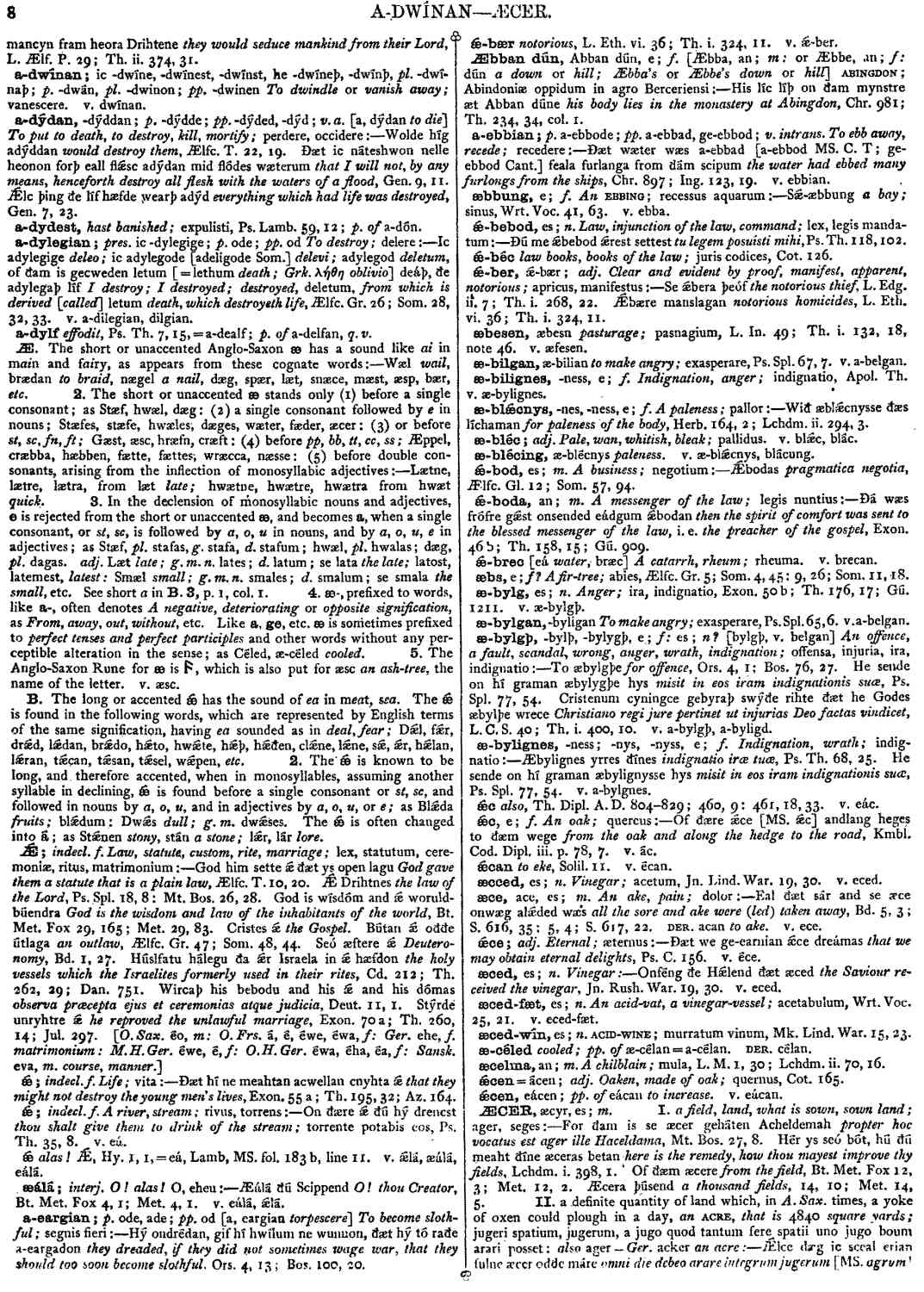Æ
- Wæl wail, brædan to braid, nægel a nail, dæg, spær, læt, snæce, mæst, æsp, bær, etc.
- Lætne, lætre, lætra, from læt late; hwætne, hwætre, hwætra from hwæt quick.
Bosworth, Joseph. “Æ.” In An Anglo-Saxon Dictionary Online, edited by Thomas Northcote Toller, Christ Sean, and Ondřej Tichy. Prague: Faculty of Arts, Charles University, 2014. https://bosworthtoller.com/306.
Checked: 0